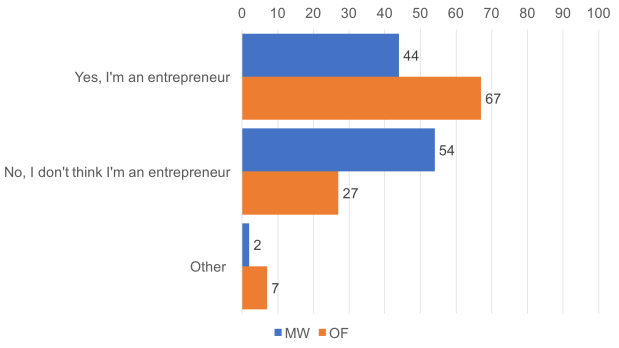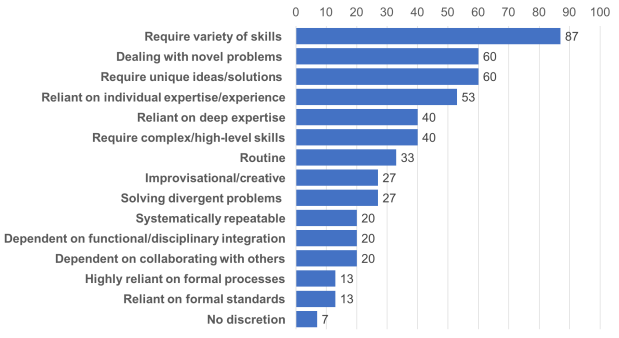My paper “Workplace learning in crowdwork: Comparing microworkers’ and online freelancers’ practices” has been accepted for publication in the Journal of Workplace Learning. Here is the abstract:
Purpose: This paper explores workplace learning practices within two types of crowdwork– microwork and online freelancing. Specifically, the paper scopes and compares the use of workplace learning activities (WLAs) and self-regulatory learning strategies (SRL strategies) undertaken by microworkers and online freelancers. We hypothesised that there may be quantitative differences in the use of WLAs and SRL strategies within these two types of crowdwork, because of the underpinning differences in the complexity of tasks and skill requirements.
Methodology: To test this hypothesis, a questionnaire survey was carried out among crowdworkers from two crowdwork platforms – Figure Eight (microwork) and Upwork (online freelancing). Chi-square test was used to compare WLAs and SRL strategies among online freelancers and microworkers.
Findings: Both groups use many WLAs and SRL strategies. Several significant differences were identified between the groups. In particular, moderate and moderately strong associations were uncovered, whereby OFs were more likely to report (i) undertaking free online courses/tutorials; and (ii) learning by receiving feedback. In addition, significant but weak or very weak associations were identified, namely OFs were more likely to learn by (i) collaborating with others; (ii) self-study of literature; and (iii) making notes when learning. In contrast, MWs were more likely to write reflective notes on learning after the completion of work tasks, although this association was very weak.
Contribution: The paper contributes empirical evidence in an under-researched area – workplace learning practices in crowdwork. Crowdwork is increasingly taken up across developed and developing countries. Therefore, it is important to understand the learning potential of this form of work and where the gaps and issues might be. Better understanding of crowdworkers’ learning practices could help platform providers and policymakers to shape the design of crowdwork in ways that could be beneficial to all stakeholders. The paper outlines several implications for the design of crowdwork.



 Figure 2. Reported entrepreneurial self-identity among microworkers, MW (n=167) and online freelancers, OF (n=15)
Figure 2. Reported entrepreneurial self-identity among microworkers, MW (n=167) and online freelancers, OF (n=15)  Figure 1. Distribution of SRL scores among the sample of crowdworkers, percentages (n=182, including microworkers (MW) n=167 and online freelancers (OF) n=15).
Figure 1. Distribution of SRL scores among the sample of crowdworkers, percentages (n=182, including microworkers (MW) n=167 and online freelancers (OF) n=15). 




 Figure 1. Percentage of crowdworkers who reported using these workplace learning activities frequently or very frequently
Figure 1. Percentage of crowdworkers who reported using these workplace learning activities frequently or very frequently